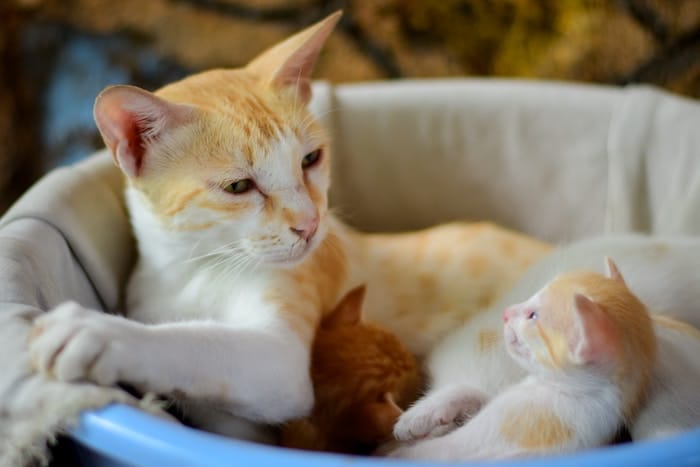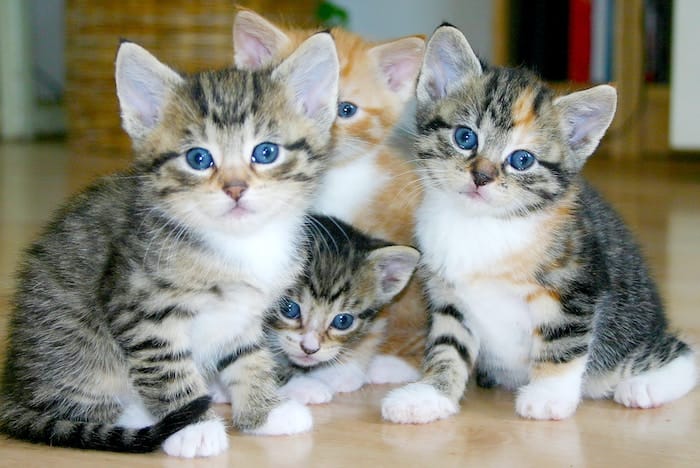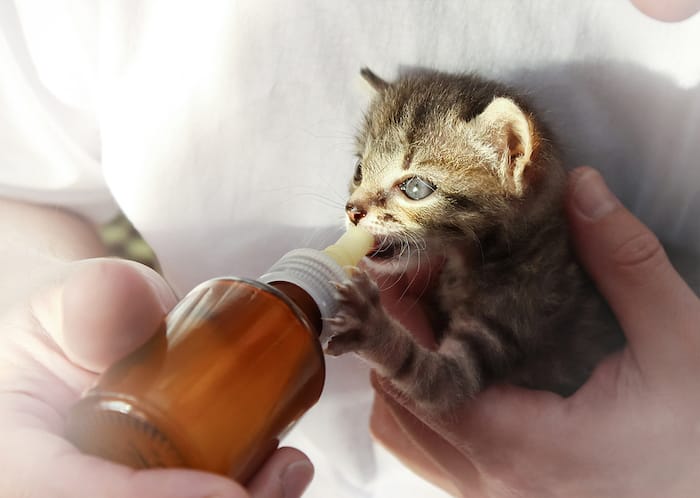Cats are known for their ability to reproduce quickly, and as a result, it’s essential to understand the average number of kittens a cat can have. The number of kittens a cat can have varies depending on various factors, including the cat’s breed, age, health, and environmental factors. In this blog post, we’ll explore the average number of kittens a cat can have and the factors that influence litter size.

Average Litter Size
The average litter size for a cat is around four to six kittens. However, this can vary greatly depending on the breed, age, and health of the cat. Some breeds, such as Siamese cats, are known for having larger litter sizes than other breeds. Additionally, younger cats may have smaller litters than older cats, as they have not yet reached their peak reproductive age.
Factors that Influence Litter Size
There are several factors that can influence the number of kittens a cat has. Here are some of the most important ones to keep in mind:
- Breed: As mentioned earlier, some breeds are known for having larger litter sizes than others. For example, the average litter size for a Siamese cat is around six kittens, while a Persian cat’s average litter size is closer to three.
- Age: A cat’s age can also play a significant role in the number of kittens she has. Younger cats may have smaller litters as they are not yet fully mature, while older cats may have smaller litters due to age-related fertility issues.
- Health: A cat’s overall health can affect her ability to carry and deliver healthy kittens. Cats with underlying health issues or nutritional deficiencies may have smaller litters or may be at higher risk for pregnancy complications.
- Environment: The environment in which a cat lives can also play a role in litter size. Cats that live in stressful or unhealthy environments may have smaller litters, while cats that live in optimal conditions may have larger litters.

Signs of a Large Litter
If you suspect that your cat may be pregnant, there are several signs to look out for that may indicate a larger than average litter size. These signs include:
- A larger than normal belly size
- Increased appetite and weight gain
- Nesting behavior
- Restlessness or agitation
- More frequent urination
It’s important to note that larger litters can put a strain on a cat’s body and may require additional monitoring and care during the pregnancy and delivery process. It’s always best to consult with a veterinarian if you suspect that your cat may be pregnant and to follow their advice regarding care and monitoring.
Keeping Kittens Healthy
Kittens should ideally stay with their mother and littermates for at least 8 weeks before being separated. During this time, the kitten learns important socialization skills from their mother and siblings, such as how to play and communicate with other cats. They also receive important antibodies from their mother’s milk, which help to boost their immune system and protect them from diseases.
However, some experts recommend keeping kittens with their mother and littermates until they are 12 weeks old, as this can further enhance their social skills and overall development.
Vaccinations
Kittens need vaccinations and vet checkups early on in their lives. According to general guideline recommended by the American Association of Feline Practitioners (AAFP) and the American Veterinary Medical Association (AVMA), here is a vaccination schedule for kittens:
- 6 to 8 weeks: Feline Viral Rhinotracheitis, Calicivirus, and Panleukopenia (FVRCP) vaccine
- 10 to 12 weeks: FVRCP vaccine booster, and vaccination for Feline Leukemia (FeLV)
- 14 to 16 weeks: FVRCP and FeLV vaccine booster
Some veterinarians may also recommend a vaccine for Chlamydia at 12 weeks, and a rabies vaccine at 16 weeks.

Conclusion
The average litter size for a cat is around four to six kittens, but this can vary depending on various factors, including breed, age, health, and environment. While larger litters can be a sign of good health and fertility, it’s essential to monitor the cat’s health closely during the pregnancy and delivery process to ensure the best outcome for both the mother and kittens. If you have any concerns about your cat’s reproductive health or suspect that she may be pregnant, consult with a veterinarian for guidance and support.
Related Reading
Reviewed by: Tim Winter

Tim Winter has dedicated his writing and research efforts to animals and wildlife. He explores the globe and sees firsthand the negative impact humans have on the environment. Tim is dedicated to promoting responsible environmental stewardship. He holds a Bachelor of Science in Advertising from the University of Oregon School of Journalism and Communications.
